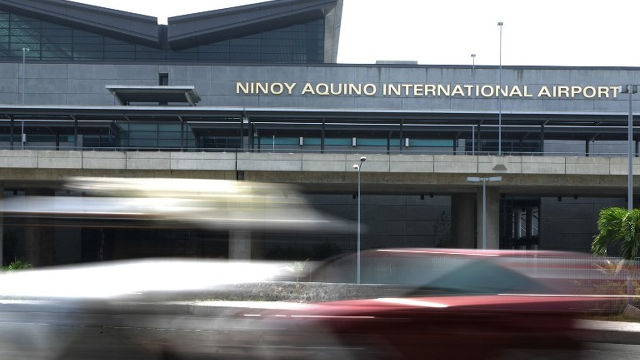SUMMARY
This is AI generated summarization, which may have errors. For context, always refer to the full article.

MANILA, Philippines – The Bureau of Immigration (BI) clarified that showing proof of financial capacity is not a requirement for Filipinos who want to travel abroad, contrary to a news report.
A news report (not on Rappler) said the bureau will be requiring this of all Filipinos leaving the country, as a means to deter human trafficking and stem the flow of undocumented overseas Filipino workers (OFWs).
In a press release on Friday, March 14, BI Commissioner Siegfried Mison said those who have complete travel documents, such as a valid passport and tourist or working visas, are allowed to leave the country.
Travelers will only be asked to present additional supporting documents – including proof of financial capability to travel or proof of work or support in the Philippines – if it appears that the purpose for travel is inconsistent with what they have declared before immigration officials.
Mison said it is a common practice for Filipinos to travel as tourists and end up as undocumented workers abroad.
He also said the bureau is more stringent in screening those who fit certain “tourist worker profiles”:
- First time travellers who are going to destinations that are not popular among tourists
- Tourists with no steady source of income in the Philippines and no benefactors in their country of destination
The BI though said its officials “assess the totality of the circumstances” to determine the passenger’s true intent.
Guidelines since 2012
The bureau and the Inter-Agency Council against Trafficking (IACAT) created measures to protect Filipinos from illegal recruitment and human trafficking.
In deciding whether to allow individuals to leave the country, immigration officials refer to the “Guidelines on Departure Formalities for International Bound Passengers,” which took effect January 2012.
The guidelines, which were approved by the Department of Justice, was formulated by a technical working group in accordance with Republic Act 9208 or the Anti Trafficking in Persons Act of 2003.
Mison said the implementation of the guidelines contributed to a decline in the incidents of human trafficking and illegal recruitment.
Under the guidelines, the bureau will automatically subject the following to secondary inspection:
- Travelers without financial capacity to travel escorted/accompanied by a foreigner who is not related to them
- Minor traveling alone or unaccompanied by either parent or legal guardian without the required travel clearance from the Department of Social Welfare and Development (DSWD)
- Previously repatriated irregular workers, in which case, travel may not be allowed without the clearance from the IACAT
- Partners and spouses of foreign nationals intending to depart to meet and/or marry his/her fiancé without the CFO Guidance and Counseling Certificate
- Passengers traveling to countries with existing deployment bans, alert levels, and travel advisories and those in possession of a visa to the said countries
- Passengers who stayed abroad for more than one year during a previous departure from the country as a tourist/temporary visitor, intending to depart for the second and/or subsequent time
Based on the guidelines, travelers are categorized according to purpose, whether as tourists, OFWs, or immigrants. They will be required to present documents depending on their travel purposes to prevent being offloaded.
The BI said offloading, or barring passengers from leaving the country, is not an official government policy but a consequence of the implementation of the guidelines.
Mison added: “We don’t offload people just because we want to. It’s a bitter pill that we have to swallow because we want to protect our fellow Filipinos.”
Section 6, Article III, of the 1987 Constitution guarantees Filipinos’ right to travel, but it is not absolute. The Constitution states this right may be curtailed for the interest of national security, public safety, or public health. – Rappler.com
Add a comment
How does this make you feel?
There are no comments yet. Add your comment to start the conversation.